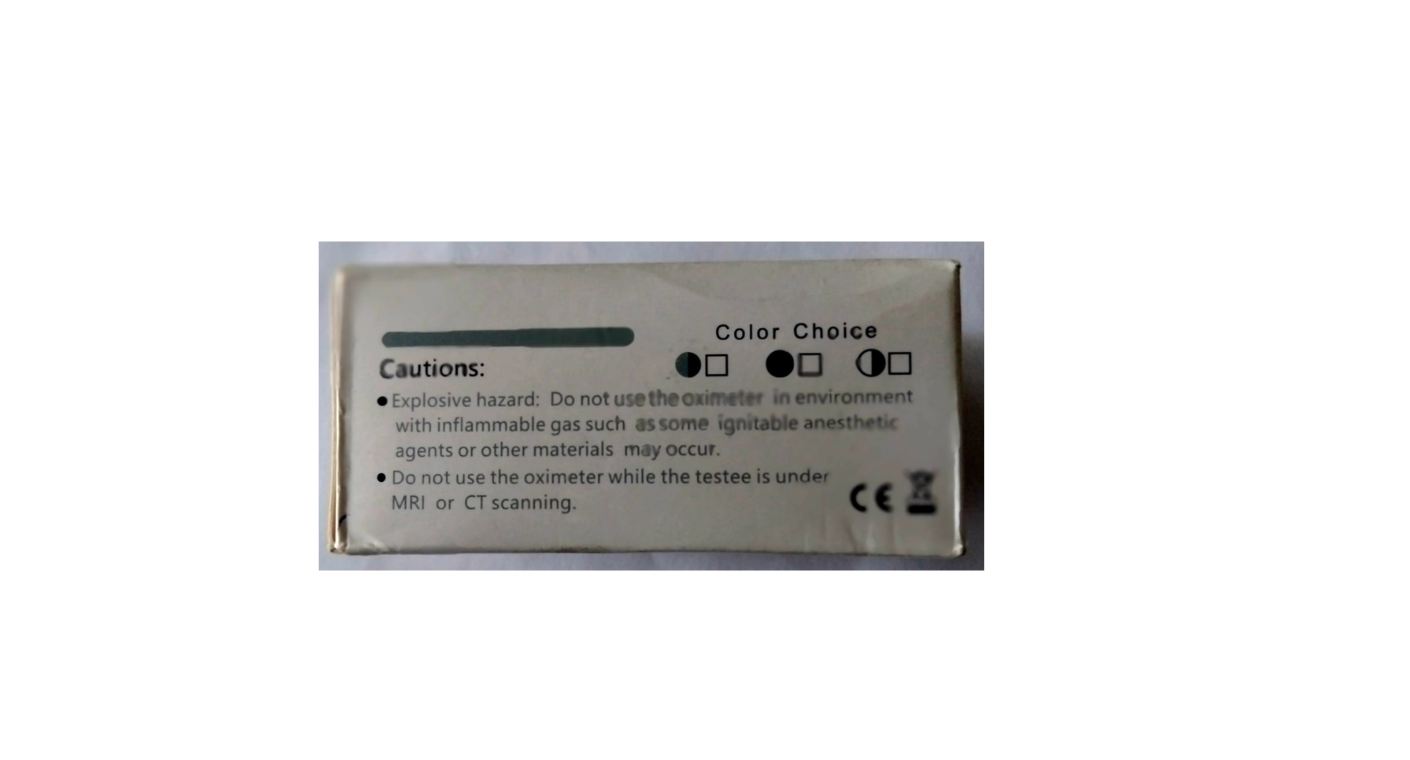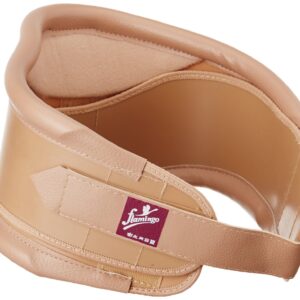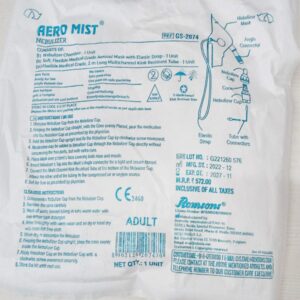DESCRIPTION
A fingertip pulse oximeter is a non-invasive medical device used to measure a person’s peripheral oxygen saturation () and pulse rate (heart rate).
- Appearance: It is typically a small, portable, electronic, clip-like device, similar in size to a clothes pin.
- Application: It’s designed to clip onto a thin, pulsating part of the body, most commonly a fingertip, but sometimes an earlobe or toe.
- Display: It features a small digital screen that displays the results, usually including:
- (Oxygen Saturation): Presented as a percentage (e.g., 98%). This is an estimate of the amount of oxygen-carrying hemoglobin in the blood relative to the total hemoglobin.
- Pulse Rate (PR): Measured in beats per minute (bpm).
- Some models may also show a plethysmographic waveform or a bar graph indicating the pulse strength.
How It Works (Mechanism)
The device works using the principle of spectrophotometry and the difference in light absorption between oxygenated and deoxygenated blood:
- Light Emission: The clip contains two small Light Emitting Diodes (LEDs) that shine two different wavelengths of light (typically red and infrared) through the tissue (like the fingertip).
- Light Absorption: Oxygenated hemoglobin () and deoxygenated hemoglobin (Hb) absorb these two wavelengths of light differently.
- absorbs more infrared light.
- Hb absorbs more red light.
- Detection: A photodetector on the opposite side of the finger measures the amount of each light wavelength that passes through.
- Calculation: The oximeter’s internal processor uses the difference in light absorption that pulses with the arterial blood flow to calculate the ratio between oxygenated and deoxygenated hemoglobin. This ratio is then converted into the percentage displayed on the screen.
Common Uses
Pulse oximetry is a standard tool in healthcare and is widely used for:
- Monitoring Conditions: Checking the oxygen levels of people with conditions that affect blood oxygen, such as:
- Chronic Obstructive Pulmonary Disease (COPD)
- Asthma
- Pneumonia
- Heart Failure
- Sleep Apnea
- Clinical Settings: Used routinely in hospitals, emergency rooms, during and after surgery, and while administering anesthesia to monitor a patient’s respiratory status.
- Assessing Treatment: Evaluating how well a new lung medication, supplemental oxygen, or a ventilator is working.
- General Wellness: Non-medical grade devices are sometimes used by athletes, pilots, or hikers at high altitudes to monitor changes in their oxygen levels.
Important Disclaimer: A pulse oximeter is a tool for monitoring. It does not provide a diagnosis. If you have concerns about your oxygen saturation readings or any symptoms of low oxygen, you should always consult a healthcare professional. Readings can be inaccurate due to factors like cold fingers, dark nail polish, or poor circulation.














Reviews
There are no reviews yet.